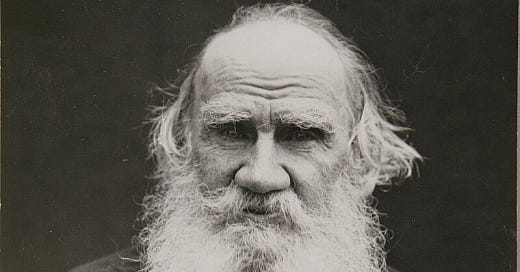Analyzing Literature as an Act of Resistance
Talking Craft in Times of Trouble
i.
Q: How, one might reasonably inquire, can anyone spend time analyzing literature when the entire country is a conflagration? What purpose is served reading stories when the smirking arsonists are going about their ugly business, right out in the open?
A: What better time is there for such stuff?
First off, as positive distraction. I ask any politically minded, legitimately outraged bystander: is more hate-scrolling on social media going to do anything, change anything, make a material difference on macro—and especially micro levels?
Shortly after the November election, in a post entitled “Our Artists Will Be There (As Usual, As Always), I wrote: No one is coming to save us. But the artists will be, as always, on the front lines. They always have been. Here’s hoping we can find their work (everything up until this moment; everything going forward) consoling, inspiring, empowering. It’s up to us to create the type of world we want to have; always has been, always will be.
I hope everyone, especially the teachers, creatives, and political activists in our midst are maintaining a healthy balance between staying productive, positive, and engaged. I’m encouraged to report that, in my circles, there’s no signs of retreat; everyone seems to understand (just like in 2017), courage and solidarity are required and acting accordingly.
I’ve been a grateful fan of George Saunders, the writer, for two decades, and I’ve been, in some ways, a bigger fan of George Saunders the human being. If you know, you know, but for those only aware of the work (for those who don’t, start here and then absorb everything else), George is the rarest of creatures, particularly within the arts, most especially in our Art Monster Era: he’s a decent human being who very obviously cares about humanity. (A lot more about Art Monsters here.)
If you’re a writer at any stage of your career, I heartily recommend his Substack Story Club with George Saunders. You can see a master—and teacher—at the height of his game, exploring great writing and providing opportunities that, until this online forum began, were available only to his lucky MFA students.
ii.
Reading Saunders, as a writer, is education enough, but his style has continued to evolve and he’s managed to be a political writer without being…political (as anyone knows, this is not only harder than it looks, it’s all but impossible, especially post-2016). But like any scribbler with an old school sensibility who happens to enjoy teaching, he has a soft spot for the masters (in general), Russian Lit (in particular). His collection A Swim in a Pond in the Rain is essential for any scholar who can’t get enough of Tolstoy and Chekhov, and Saunders loves rolling up sleeves and going deep on craft.
The most recent discussion at Story Club has centered on Tolstoy’s “The Death of Ivan Ilyich” which, like “Bartleby, The Scrivener” excels as a standalone statement of purpose, but also presents, in admirable miniature, the most urgent and salient obsessions of their longer masterpieces (Anna Karenina and Moby Dick, respectively). I get enough sustenance from Saunders’s insights, but he’s also created a robust community of lit obsessives, and the comments sections are always full of opinions and passion.
All of which is a rambling preamble to a perfectly fair question: are you seriously, in February of 2025, suggesting it’s advisable, much less edifying, to be disappearing not only inside literature but Russian literature, and not only Russian literature, but 19th Century Russian Literature, and not only 19th Century Russian Literature, but 19th Century Literature by…Leo Tolstoy?
Well, yes. Obviously.
But why? Certainly, as temporary retreat from our ceaseless contemporary shitstorm. But also for the same reasons anyone responds to art, at any time. The magic of art is the way it defies death (literal, figurative): so long as human eyes, ears, and hearts are available to receive it, art can align us through centuries. Who hasn’t, on occasion, felt closer to an author or work of art than their closest relatives?
Art has the possibility of teaching us so many things, and in ways that cut across economic, geographic, and even historical barriers. An exceptional poem, song, story, painting, or photograph can present experiences from a life we don’t know or could only imagine, or it can remind us that most human beings are desperate for the same things: love, peace, understanding, justice, compassion, community, beauty.
Art reveals recurring themes (good, bad, ugly) in human history, and homes in on what makes kings, soldiers, parents, orphans, the working poor, and the wealthiest one percent identical: we all, after a fashion, are seeking meaning in our brief time on this planet. Stories heal and inspire when they force us to ask questions, understand there are often many answers to any question, and that by seeing ourselves in others (and vice versa), we’re less likely to be intolerant, lazy, or unkind. There is a quiet power in the ways art unites us.
Reading “Ivan Ilyich,” we see the same things Tolstoy saw (in the late 19th C, in Russia), the same things he was writing about, which were the things he was thinking about, which are what he was thinking about much closer—we know, he knew—to the end of his life than the beginning. And what do we learn, aside from carpe diem, and love is everything, and that if we don't learn from previous mistakes (our own, our families, our species') we're doomed to repeat them? We learn…everything. Art is the sum total of some of the world’s most sensitive and intelligent human beings, bearing witness for the permanent record. This is all free for us to access and emulate—if we’re willing and able.
And this starts to sound like...contemporary American politics, circa 2025, doesn't it?
iii.
Consider.
Would some of the folks be as hellbent on destruction and/or apathy had they actually read some Kafka or Orwell or Upton Sinclair or Milan Kundera? If some of these folks actually watched the occasional movie with subtitles might it inexorably do what art does better than anything: at once broaden and focus one's mind: make connections about how humans are the same, across time, language, faiths, circumstances...but whenever good has been possible it's because of connection and community, and that when one person or too few people have primary access to all the power, only bad things ensue, for everyone. Et cetera.
I recall when the Buddhist statues were being destroyed in early 2001. Of course, one need not be a perceptive political scientist or historian to note, with hindsight, that 9/11 was less than a year away. I distinctly remember just about everyone but the intellectuals (especially in the U.S.A.) being mostly indifferent about this; for anyone passingly familiar with 20th C history, alarms were blinking red. Some of us understood, if even instinctively: the Taliban erasing history was a seminal tragedy, the work of misguided fanatics, obviously but more: the kind of gesture, an antisocial, nihilistic one the likes of which we don't come back from. Hard to compare this to, say, what happened last week at The Kennedy Center but it's on the same continuum. People don't seek to censor or destroy art unless they’re afraid of it, unless they've never been able to understand it.
So: What can art tell us at times like this?
Quite a bit, actually—and it always has (if art holds up a mirror, the world has never had a shortage of material on display). Plato the philosophizer and Orwell the author both used storytelling to describe and explain who we are, what we do, and why we do it. Is there any multi-volume narrative that can tell us more about the pernicious tendencies of the powerful than what Percy Bysshe Shelley achieves in only 14 lines with “Ozymandias”? Does any big-name biography explain conflict and what drives it better than Bob Dylan’s “Masters of War” (or Black Sabbath’s “War Pigs,” if you prefer)? No words are necessary for a genius like Goya to indelibly illustrate corruption and brutality—and once you’ve seen his work you never unsee it.
Perhaps that’s the rub: the people who are drawn to art are seldom the ones most in need of its lessons. More: if so many of our worst ambassadors, including psychopaths ranging from Cortés to Hitler to Putin, were able or willing to expose themselves to the intellectual and spiritual riches our best storytelling imparts, we might have answers to questions that shouldn’t need asking.
So, I salute and cherish George Saunders for doing what he always does: discuss, analyze, celebrate what we find in art, which is one of the things—along with health, love, solidarity—that makes life worth living for; worth fighting for. If we won't fight, in times of duress, for the enduring power of creative expression, we’re ultimately so many termites, forever at war over some turf that will be washed away—in weeks or hours—by a flash flood; water that will evaporate seconds after forever altering the landscape which, after the violence of this storm, will appear precisely as it did before.








Yes! I remember one professor pointing out that, up until then, in all literature, there was the obligatory set-up, the back-story, the descriptions (of people and places) and scene-setting....but with late 19th C Russian Lit, we start getting into the Vodka and God on page 2. So true. There's an urgency and honesty to the Russian masters that cuts right thru most of the BS and, of course, is as--or more--applicable to our contemporary psychosis!
Brilliant. Thank you.
I had a graduate course in Russian Lit with a chain smoking—in the classroom—professor who was from Russia. She broke down Tolstoy, Gogol, Turgenev, Dostoyevsky in such a cellular way that it broke me down as a human being. The cells of those writers and their stories rearranged and enriched my own.